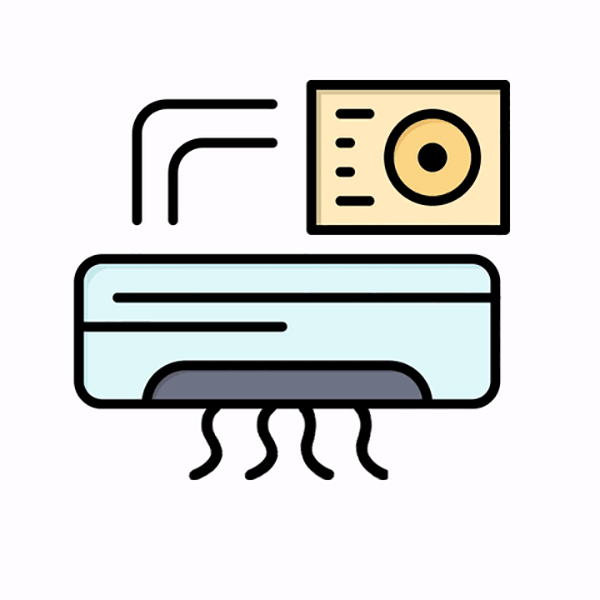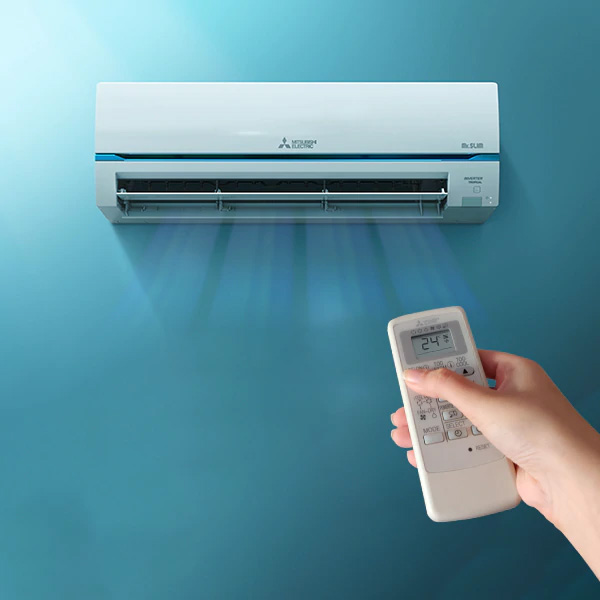Our purchase decisions are getting improvised from time to time. The decision goes through many processes starting with the arising necessity or the desire to purchase the product or service. Speaking with different people and knowing their experiences. Checking various websites and reading detailed reviews etc. Coming to the phase of shortlisting basis set budget and finally, purchasing the product. Is this a Smart Purchase? Well, not completely. Have you studied current trends, features, comparisons, environmental benefits before making the decision? It should involve all these factors to be an informed buyer. The one who has the complete knowledge of the services obtained by him.
If you are planning to buy an air conditioner there are certain things that you should keep in mind before pressing the Buy now icon.

-
Check area in Square Feet or Right Air conditioning Capacity Selection: The first homework you should do before buying an AC is to calculate the area of the place for which air conditioning is required. The thumb rule for calculation of air conditioning requirement is a 1-ton machine for 100 square feet of area.
-
Exposure to direct sunlight: Direct sunlight exposure to the area which needs to be air-conditioned is an important factor. A room with direct sunlight exposure needs better cooling than a room that does not have direct sunlight exposure. Leverage on the tonnage of the machine could be taken only for areas that do not have direct sunlight exposure.
-
Noise Level: Noise level of the machine is one of the important aspects that one should check. For a comfortable environment, a, low noise level should be your targeted purchase. Choose the air conditioner that comes with quite operation feature it works well without being heard. They assure a sound sleep after a tiring day.
-
Star Rating: The star rating is a measure of energy efficiency of an appliance; it is a five points scale where higher the rating lower is the energy consumption. For air conditioners manufactured and sold in India, starting it is called the Indian seasonal energy efficient ratio or ISEER this defined the energy efficiency of cooling.
-
Inverter Vs Non-Inverter AC: With inverter technology, the air conditioner can vary its power output to precisely maintain room temperature. Non-inverter ACs have compressors that go “On” and “Off”. Whereas inverter ACs have compressors that are “On” all the time. The Inverter technology AC tend to maintain optimum cooling at all time. Inverter technology AC tends to have more control and saves more on your electricity bills. The power consumption data by BEE states that Inverter ACs of BEE 3-star ratings are about 40% more energy-efficient than BEE 3 star rated non-inverter ACs. The Inverter technology AC comes with wide range of filters for maintaining indoor air quality, whereas, Non-Inverter AC only comes with standard filters.
-
Tropical Inverter Technology AC: The
air conditioners are also coming up with Tropical Inverter Technology that puts inverter technology with a specially designed compressor and PCBs. This helps it to perform well even under extreme climates; just like we have in India.
Most ACs become inefficient at high temperatures, this inverter technology works like a car’s accelerator. The inverter technology AC adjusts the speed according to the temperature of incoming air or the demand of the user.
-
Air Flow: An actual cubic feet per minute is a global guideline that defines the airflow from a compressor or blowers and quantifies airflow. It indicates how many cubic feet of air pass by a stationary point in one minute. The higher the number, the more air is being forced through the system. The airflow in CFM is calculated by Flow of Velocity in Feet per minute multiply by duct cross sectional area. This helps consumers to make their product decisions on a holistic view of the machine considering a balance in energy consumption and output. The higher the CFM cooling will be faster in the room. Choose ACs with a Long Airflow feature it helps to deliver substantial and comfortable airflow up to 12 meters if you are buying for large living rooms.
-
Air Filtration System: The air quality produced by an AC should be carefully examined and seen if they have an air cleaning filter that is charged with static electricity, enabling it to attract and capture dust particles than regular filters don’t. Other features like Micro-Particle Catching Filter (PM 2.5), Dual Barrier Coating (The coating on the inner surface of the air conditioner to prevent dirt from getting in), and Anti-Allergy Enzyme Filter helps to reduce virus, dust mites, and pollen.
-
Anti-rust treatment: Check if the outdoor units have been treated with special anti-rust paint. The anti-rust treatment of outdoor units increases the durability and performance of the machine since the outdoor unit must bear the climate and provide cooling. Choose the product with features like Anti-Corrosion Coating (IDU) is applied to the heat exchanger to increase corrosion toughness. Anti-rust painting and galvanized steel for the base of the outdoor unit protect the cabinet under harsh environment.
-
Electronic Metal housing box: The Indoor unit of ACs have printed circuit boards with wires, ICs, diode, and capacitors which could be a health hazard in case of a short circuit. Metal coating of the PCB protects the unit from dust and damage in case of a short circuit or fire. While figuring out which AC to buy, choose the one with Metal Box Protection for Indoor Units PCB. Also, check if your AC outdoor unit has non-inflammable material for service panel in consideration of fire accidents. The service panel should be equipped with metal cover for electrical wiring connection point. It helps to avoid fire in-case of short circuit.
-
Refrigerant: Always check what refrigerant is being used by the AC. The best refrigerant used today is R32 which and eco-friendly resulting in minimal impact on the ozone layer. R32 is also more energy efficient than R410A.
-
Service Backup: The Service network of an Air Conditioner is extremely important. Best of the companies understand the fact that other than making a perfect product they also need to provide a good service backup. Check if the manufacturer has a toll-free customer care number since it’s the starting point of a service request.

Effective from 1st January 2020, the Government of India has mandated that Room Air conditioners should have 24 degrees Celsius as default temperature. Lastly, always keep my mind that the total cost of ownership of the AC should be considered while making a purchase decision, aspects like maintenance need, servicing costs, and durability of the machine should be factored while buying. The cost of AC does not necessarily reflect the cost of ownership since the benefits of a good machine extend to many years compared to an average machine that needs regular service and maintenance.


